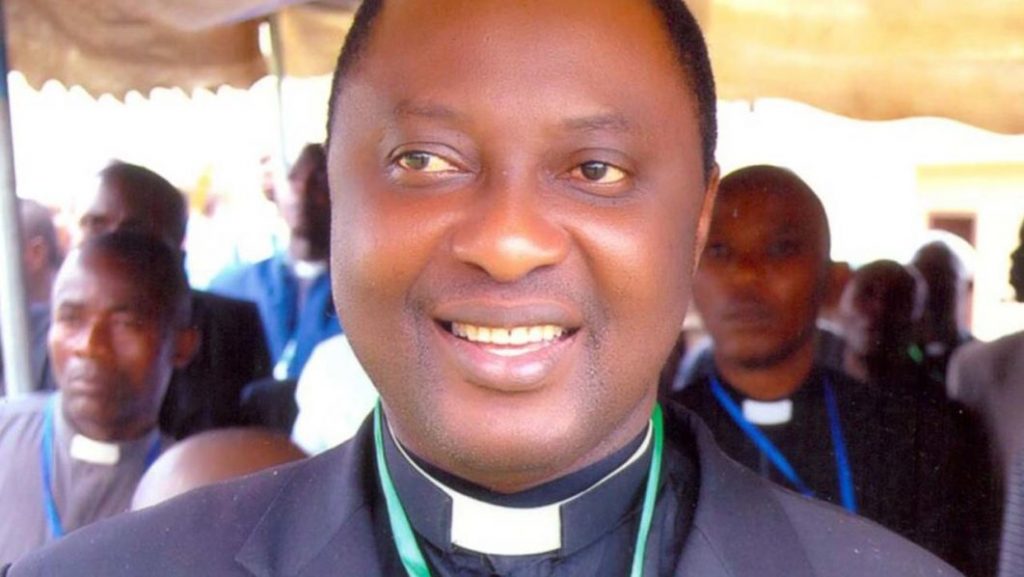God is on the side of the poor. He is characterized by his preferential option for the oppressed. But instead of making him a partial God, his preferential treatment or siding with the oppressed rather makes him an impartial God.
The theological principle that God’s impartiality makes him to love the oppressed and downtrodden like the orphan, widow and alien with preference is drawn from the OT text (Deut. 10:16-18): “Yahweh your God is God of gods and Lord of Lords, the great God, triumphant and terrible, never partial, never to be bribed. It is he who sees justice done for the orphan and the widow, who loves the stranger and gives him food and clothing.”
Justice, in the light of this text, therefore clearly means taking sides with the oppressed. Such is God. He cannot be compared with anyone for he does not delight in fraternizing with the wealthy and famous, but has the unique character of identifying with the poor – fighting their cause, rescuing them from their misery, and transforming the paupers into princes (Ps. 113: 5-9; 1 Sam. 2:8).
God does not necessarily hate or oppose the powerful and wealthy. But he has the predicament of the poor at heart, and is always there for them. He succours the indigent poor, champions the powerless poor, and exalts the humble poor. He wants his people to imitate him in caring for the poor. He is in fact, contemptuous of those who exploit and maltreat the poor socially, economically or religiously.
Moreover, and consequent on the above, the wise teachers of Israel also taught that behind the poor, Yahweh their creator and Lord himself is standing. This means that the people’s attitude to God will be reflected in their attitudes to the poor, or rather that the people’s attitude towards the poor is invariably directed to God who is behind them. So, on the one hand, “He who mocks the poor shows contempt for their Maker” and on the other hand “He who is kind to the poor lends to the Lord.” (Proverbs 17:5; 19:17). Therefore; “Beware of Oppressing the Poor.”
The Readings (Mattins): Prov. 14:31-15:17; James 4:13-5:11
The OT is a part of the section of the Book of Proverbs regarded as the main collection of Solomon’s proverbs (10:1-22:16). The second Solomonic collection (25-29) is known as Hezekiah’s collection of Solomon’s proverbs. This section of Proverbs does not appear to have any particular arrangement of topics or issues discussed except that occasionally, two or three proverbs deal with the same subject. The passage for the OT starts with the statement: “He who oppresses the poor shows contempt for their Maker, but whoever is kind to the needy honours God.” It is a wise saying which gives the explicit implications of oppressing the poor and vice versa – showing contempt to God who made them or honouring God if otherwise. The poor did not make themselves. It is God himself who made them, and in his own image too. God loves and watches over them. Oppressing the poor is, therefore, a direct confrontation of God, which is dangerous. It is daring God. So, beware.
The NT started with a condemnation of the arrogance and presumption of the business tycoons, proceeded to the issues of oppression of the poor and concludes with an exhortation on the oppressed to be patient and not to seek revenge since the judgement of God is around the corner.
The oppressive rich are warned of the misery coming on them consequent on God’s judgement on their oppressive acts. They oppressed the poor by hoarding wealth, denying their wages, living in luxury and self-indulgence, and condemning innocent men. By so doing, they played into the hands of God and he will deal with them. He has declared judgement on them. “It is a fearful/dreadful thing to fall in to the hands of the living God” (Heb. 10:31); and one sure way of doing this is by oppressing the poor. So, beware.
The Venerable Dr Princewill Onyinyechukwu Ireoba, FIMC, CMC
is the Rector, Ibru International Ecumenical Centre, Agbarha-Otor, Delta State.
princewillireoba@gmail.com, trinityfoundationibrucentre@gmail.com

